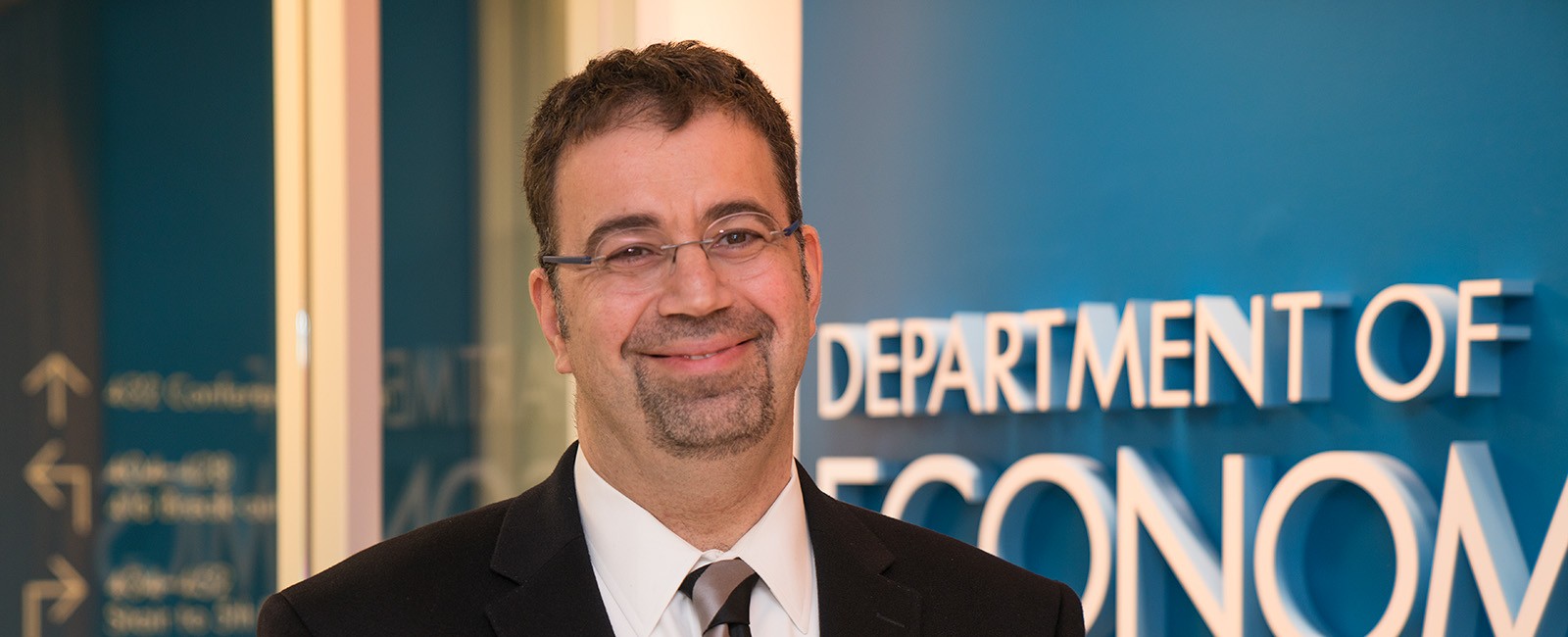
The Nobel Prize in Economic Sciences goes to Daron Acemoglu, winner of the Frontiers of Knowledge Award in 2016
Daron Acemoglu, winner of the 9th BBVA Foundation Frontiers of Knowledge Award in Economic, Finance and Management was announced today as joint winner with Simon Johnson and James Robinson of the 2024 Sveriges Riksbank Prize in Economic Sciences in Memory of Alfred Nobel. The committee distinguished the three for demonstrating the importance of societal institutions for a country’s prosperity.
14 October, 2024
The laureates’ research,” says the Nobel citation, “has helped us understand why “societies with a poor rule of law and institutions that exploit the population do not generate growth or change for the better.” Their work, it continues, shows that “one explanation for differences in countries’ prosperity is the societal institutions that were introduced during colonization,” while insisting on the importance of inclusive institutions in bringing about prosperous populations and strengthening democracy.
“Reducing the vast differences in income between countries is one of our time’s greatest challenges. The laureates have demonstrated the importance of societal institutions for achieving this,” remarked Jakob Svensson, Chair of the Committee for the Prize in Economic Sciences.
In 2016, Acemoglu (Istanbul, 1967) received the BBVA Foundation Frontiers of Knowledge Award in Economics, Finance and Management. The economist’s work, said the committee at the time “has helped elucidate the determinants of long-term economic development, with particular emphasis on the important role played by institutions and social organization. Acemoglu’s novel contribution was to deploy a strategy that led him to empirical evidence identifying the causal effect of institutions on development.”
“Sustained economic growth needs innovation and creativity,” said the laureate in an interview after hearing of the Frontiers Award. “The role of technology, education and so on are very well understood, but what was missing was to ask questions about why it is that nations don’t invest more in education or why they don’t encourage the adoption of the best technologies.”
It is these decisions that give rise to each society’s institutions, and they, in turn, will determine its greater or lesser degree of economic development. It was for elaborating this concept of institutions and establishing its causal impact on economic development that Daron Acemoglu received the BBVA Foundation Frontiers of Knowledge Award in 2016 and has now earned the accolade of the Swedish Academy.
In 2012, Acemoglu published Why Nations Fail. The Origins of Power, Poverty and Prosperity together with James Robinson, with whom he now shares the Nobel Prize. In its pages, they develop the concept of inclusive institutions, those that provide incentives for investment and innovation and offer a level playing field. Extractive institutions, conversely, “create insecure property rights, don’t allow contracts, discourage innovation and technology adoption, and most importantly, create a very tilted playing field, advantaging a small segment of society, and sometimes even coercing people to work at low wages and banning them from occupations they wish to enter.”
The two authors conclude that “there is no easy way” for a society to transition from an extractive to an inclusive institutional framework, while admitting that “we have also found no other way of ensuring long-run prosperity.”
A groundbreaking career
Daron Acemoglu graduated from the University of York (United Kingdom) in 1989 then went on to earn a PhD in 1992 from the London School of Economics, where he stayed on teaching for a year. In 1993, he joined the faculty at Massachusetts Institute of Technology where he is currently Elizabeth and James Killian Professor of Economics.
He has authored upwards of 100 papers in international publications like the American Economic Review, Quarterly Journal of Economics or Review of Economic Studies, as well as four books. A member of the American Academy of Arts and Sciences, the European Economic Association and the Econometric Society, at the age of just 44 he was appointed editor of the latter’s journal Econometrica.
Acemoglu’s multiple distinctions include the 2005 John Bates Clark Medal, which the American Economic Association then bestowed biennially on the most outstanding U.S. economist under forty.
31 Frontiers awardees have gone on to win the Nobel Prize
The award of the Nobel in Chemistry to David Baker, Demis Hassabis and John Jumper makes a total of 30 Frontiers of Knowledge laureates that have later won the Nobel Prize.
Twelve Frontiers awardees have gone on to receive the Nobel Prize in Economics: Lars Peter Hansen (2013), Jean Tirole (2014), Angus Deaton (2015), William Nordhaus (2018), Abhijit Banerjee and Esther Duflo (2019), Paul Milgrom and Robert Wilson (2020), David Card (2021), Ben Bernanke (2022), Claudia Goldin (2023) and Daron Acemoglu (2024).
In the case of the Nobel Prize in Medicine, six Frontiers laureates were subsequently distinguished by the Swedish Academy: Shinya Yamanaka (2011), James P. Allison (2018), David Julius and Ardem Patapoutian (2021) and Katalin Karikó and Drew Weissman (2023).
The Nobel Prize in Physics has found its way to seven previous Frontiers awardees: Didier Queloz and Michel G. E. Mayor (2019), Klaus Hasselman and Syukuru Manabe (2021) Ferenc Krausz and Anne L’Huillier (2023), and Geoffrey Hinton (2024).
Finally, in the case of the Chemistry Nobel, the Swedish Academy has recognized the work of six Frontiers awardees: Robert J. Lefkowitz in 2012, Emmanuelle Charpentier and Jennifer Doudna in 2020, and David Baker, Demis Hassabis and John Jumper in 2024.

